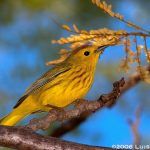Saudi Arabia’s big bet on innovation and education
By Kurt Zenz House | May 5, 2009
I am writing this article from Jeddah, Saudi Arabia, where I have had a most interesting and hopeful week.
I am writing this article from Jeddah, Saudi Arabia, where I have had a most interesting and hopeful week.
After World War II, the Bulletin of the Atomic Scientists was founded by luminaries such as Enrico Fermi, Hans Bethe, and Albert Einstein to provide an international forum for scientists to discuss issues that were—or were to become—of great importance to humanity. The founders believed that because of the horrors of the war and the threat of multiple nuclear-armed nations, scientists from across the globe should communicate directly with each other and directly with the public to ensure that national leaders could not monopolize relevant information. The idea, in a sense, was for science to transcend national identity, and it was in that same spirit of a supranational scientific community that I became associated with a remarkably bold initiative from a wholly unexpected source.
In 2007, King Abdullah of Saudi Arabia decided that his nation would build a world-class research university, which he has been envisioning building for 25 years. The king’s motivation is pretty obvious. Oil exports compose more than 70 percent of the Saudi Arabian economy, yet it employs less than 10 percent of the population. Thus, more than 90 percent of Saudi Arabians work for industries that makes up less than a third of the economy. Since one-half of the Saudi population is younger than 23 years old, unemployment and under-employment are serious concerns within the kingdom. The king observed how universities in the Americas, Europe, and Asia are engines of innovation and entrepreneurship, so he reasoned that to diversify Saudi Arabia’s economy, the kingdom needed its own engine of entrepreneurship and innovation.
Science transcends national identity, and it was in that spirit that I became associated with a remarkably bold initiative from a wholly unexpected source.”
It was in that context that the King Abdullah University of Science and Technology (KAUST) was born, and the subsequent financial and cultural investment pledged by the kingdom to KAUST is extraordinary. To start with, the kingdom is spending more than $11 billion on its new campus 80 kilometers northwest of Jeddah. Ground was broken on the new campus in October 2007, and it will be open for classes and research this September. To meet that deadline, KAUST has employed 30,000 construction workers working seven days a week in three shifts. That means that at any given time of day or night, there are 10,000 workers laboring to build the new campus. During my trip, I was driven around the campus—as well as the city that is being built to house and serve the faculty, staff, and students—and was quite impressed. I have studied at Stanford, Harvard, and MIT, and based on those experiences, I am confident that KAUST will have world-class research facilities.
In addition to its $11 billion dollar campus, KAUST was endowed on day one with $20 billion, making it one of the wealthiest universities in the world—only Harvard and Yale are in the same league. Relative to its expected size in students and faculty, KAUST will be the richest university in the world. Oxford and Cambridge are more than 900 years old. Harvard and Yale are more than 300 years old. Per student or per professor, however, the richest university in the world has not yet opened its doors.
To make his vision a reality, the king appointed his minister of oil, Ali Ibrahim Al-Naimi to lead the project. That decision was controversial because the obvious choice would have been the minister of education Faisal bin Abdullah bin Muhammad. The problem with turning the king’s vision over to the Ministry of Education, however, was that that ministry is accustomed to enforcing Saudi Arabian law on its existing university campuses, and the enforcement of those laws on the new campus would surely have limited international engagement. In Saudi Arabia, women are not allowed to drive, they are required to wear the traditional abaya, a flowing black cloak that must be worn at all times in public, and they are strictly forbidden to be accompanied by any man who is not their immediate relative.
Such restrictions on women would surely have limited the new university’s ability to attract foreign students and faculty. When I was in graduate school at Harvard, I worked alongside Phd students from Israel, Poland, China, the Netherlands, Italy, South Africa, England, Singapore, Turkey, Germany, and so on. In addition, I took classes from professors of similarly varied origins. That pattern is not unique to Harvard; the world’s great universities are remarkably diverse places. Therefore, the Saudis reasoned that for their new university to produce great scholarship, innovation, and entrepreneurship, it would need to attract the best and brightest from around the world; but doing that meant that they would have to be flexible with many of their customs.
So, the king decided that the new campus would be a progressive bubble amidst one of the most conservative societies in the world. The goal of university officials is that on campus, women will enjoy freedom identical to that enjoyed by men. Women will be allowed to drive on campus, they will be able to wear whatever they want, and most significantly, they will be allowed to freely associate with whomever they choose. For many in the West, it is hard to understand how dramatic a change this would be for Saudi Arabia. One day spent on the streets of Jeddah or Riyadh, however, would convince anyone that this is indeed a significant step for the kingdom.
There is, however, more to KAUST than just the freedoms that will be enjoyed on campus. As the founders of the Bulletin knew, science is independent of national identity. The laws of physics, biology, and chemistry do not change whether you’re in New York, London, Riyadh, or Beijing. And as such, it is often more natural for scientists and engineers of different nationalities to interact than it is for those in less universal disciplines. As a universal language, science provides common ground for the citizens of even adversarial countries, and few people would disagree with the notion that more communication between the citizens of the Western countries and Mideast countries would be a very good thing.
My own involvement with KAUST derives from its first major initiative called the Global Research Partnership. This initiative grew out of a belief that for KAUST to become a world-class research university, it needed meaningful collaborations with the world’s premier institutions. Therefore, the administrators committed more than $300 million to a variety of competitive grant awards, and as a result, there is now a worldwide network of individuals and institutions that are formally affiliated with KAUST. On my trip, I met 14 other KAUST affiliates from South Korea, China, Russia, Italy, Britain, the United States, and Germany. The KAUST affiliates form an impressive group, and in the kingdom I found myself discussing a wide variety of science and technology with these leading young scientists. We discussed topics such as the development of protein-folding algorithms, the use of directed evolution to genetically engineer algae to produce biofuels, the application of chemical looping for carbon dioxide capture, the application of Ramon spectroscopy to solid oxide fuel cells, the development of novel compounds for organic photovoltaic cells and the use of nanoscale engineering to increase their photon absorbance, and much more. There we were, a group of young scientists—both men and women—from three diverse continents discussing science and technology in the Kingdom of Saudi Arabia.
Building an open university dedicated to the principles of academic freedom in a country that still imposes capital and corporal punishment for adultery and homosexuality as well as strictly forbids the public practice of non-Muslim religions is no small task. But the king is committed to reform, and he is committed to seeing his university ranked among the world’s great academic institutions. I don’t know if KAUST will succeed, but I do believe that the world has already benefited from its efforts.
Together, we make the world safer.
The Bulletin elevates expert voices above the noise. But as an independent nonprofit organization, our operations depend on the support of readers like you. Help us continue to deliver quality journalism that holds leaders accountable. Your support of our work at any level is important. In return, we promise our coverage will be understandable, influential, vigilant, solution-oriented, and fair-minded. Together we can make a difference.
Topics: Columnists














